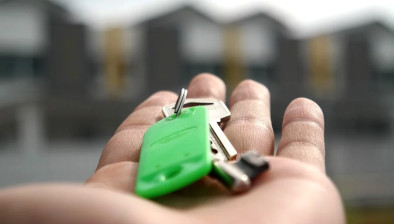UK house prices slow to 77 month low in September
A report published by Halifax has revealed that the annual UK house price slowed to a 77-month low in September, as prices fell 0.4% month-on-month.

EY ITEM Club said the decrease was the first monthly dip since May and it has caused the annual rate to slow appreciably 1.1% from 1.8% in August. This was the lowest year-on-year gain since April 2013.
Howard Archer, chief economic advisor to the EY ITEM Club, said: “The Halifax measure has tended to be at the top end of house prices (although much less so since it recently revamped its index). Latest data from the Nationwide put annual house price inflation at just 0.2% in September while the Land Registry/ONS put it at 0.7% in July.
“Latest data from the Bank of England show mortgage approvals for house purchases fell back to a five-month low of 65,545 in August after rising to a 17-month high of 67,011 in July from 66,319 in June, 65,570 in May and a 15-month low of 62.617 in March. Despite being at a 17-month high of 67,011 in July, mortgage approvals had actually still been in the 63,000-68,000 range that has broadly held since late-2016, and August’s level of 65,545 took them back to the middle of that range.
“It is possible that mortgage activity may have been lifted to July’s high by some people looking to complete their house purchases before Brexit occurs on 31 October given the major uncertainties as to what will actually happen then. Improved earnings growth in tandem with record-high employment may also have provided some recent support to housing market activity.”
Mr Archer added: “However, the fact that mortgage approvals fell back to a five-month low in August suggests that any pick-up in housing market activity is currently likely to remain short-lived amid major uncertainties.
“Survey evidence supports the view that any upside for housing market activity is currently limited. In particular, the influential RICS housing market survey reported that its August survey pointed to ‘a renewed deterioration in sales expectations over the near term, with survey respondents predicting a further decline in activity over the three months to come. Brexit uncertainty is continuously between the end of 2016 through to May. Newly agreed sales fell modestly for a second month running in August after inching up in June for the first unsurprisingly a significant factor causing the hesitation for both buyers and sellers’.
The survey showed new buyer enquiries were flat in August after rising modestly over the previous two months after falling time in 10 months.
Discussing the outlook for house prices, Mr Archer said: “With the economy largely struggling and the outlook highly uncertain, we suspect that house prices will remain soft in the near term at least. Consequently, we expect house prices to only rise around 1.0% on most measures over 2019.
“There are positives for the housing market - consumers’ purchasing power has picked up appreciably since mid-2018 (real earnings growth improved from 0.1% in the three months to June 2018 to 2.1% in the three months to July 2019). Employment has seen decent growth and reached a record high in the three months to June (although it slipped back from this level in July) while mortgage interest rates are at historically low levels.
“Indeed, there is a strong market belief that the Bank of England’s next move could well be to cut interest rates, although we think it is perhaps more likely that they will stay at their current level through to 2021 (if there is a Brexit deal).”
He added: “Meanwhile, a shortage of houses on the market will also likely offer some support to prices. The latest RICS survey showed new instructions to sell were essentially stable for a third month running in August following 11 months of declines through to May. Consequently, average stock levels on estate agents’ books in July remained close to the lowest level in the survey’s history.
“Meanwhile, even if ultimately successful, the government’s recent – and ongoing – initiatives to boost house building will take time to have a significant effect so are unlikely to markedly influence house prices in the near term at least.
“However, it is questionable whether the labour market can extend its recent improvement as companies face a soft domestic economy, heightened Brexit uncertainties, an unsettled domestic political situation and a challenging global environment. Our suspicion is that earnings growth may well have peaked in the three months to July while employment growth slowed appreciably in the three months to June.”
Mr Archer continued: “Should UK leave the EU with a deal on 31 October – or early next year – we believe reduced uncertainty could see house prices rise by around 2% in 2020. Housing market activity – and possibly to a lesser extent prices – could be given a lift in 2020 if the government cuts Stamp Duty significantly in the Budget later this year, However, the economy still looks set for a challenging 2020 even if there is a Brexit deal so that the upside for house prices is likely to be limited.
“If the UK leaves the EU without a deal on 31 October – or at a later date - we believe house prices could quickly drop around 5% amid heightened uncertainty and weakened economic activity.”




